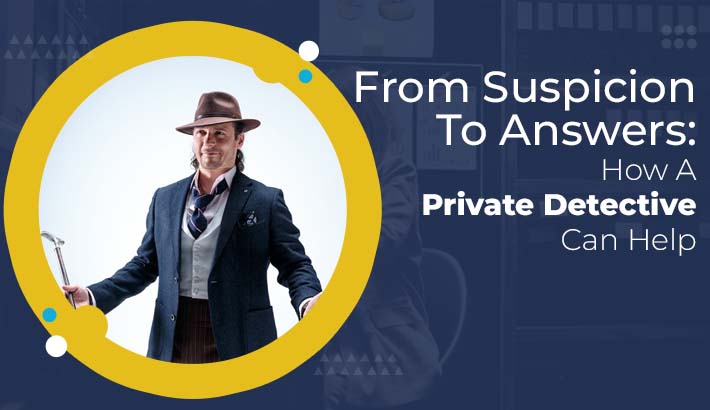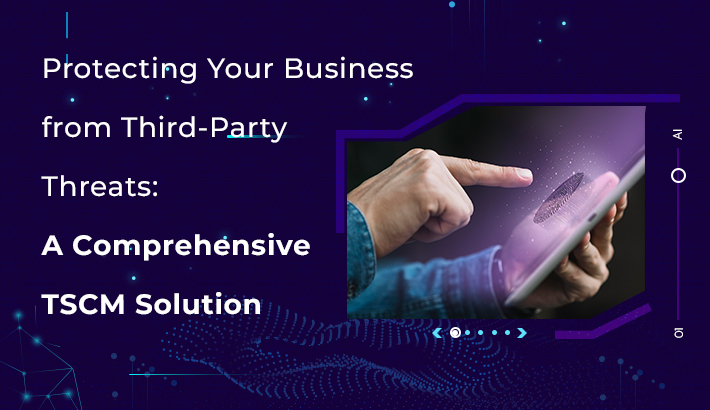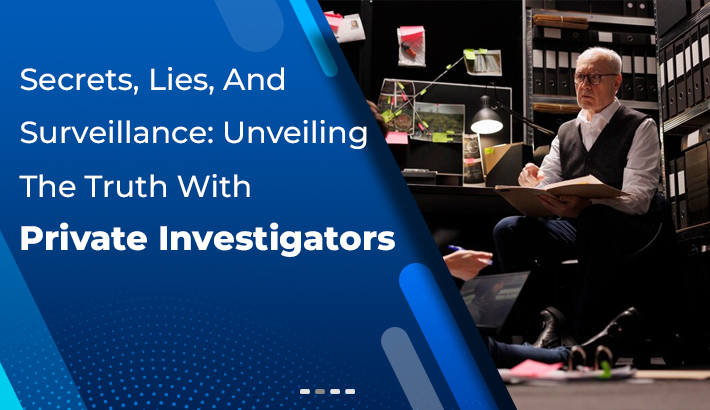In the twenty-first century, private investigators (PIs) are adaptable experts with advanced equipment and abilities that provide services for a wide variety of personal, corporate, and legal purposes. Whether you’re dealing with a personal problem, a commercial crisis, or a legal issue, a detective agency can help. Here are the top ten reasons why you might require a detective service.
Top 10 Reasons You Might Need a Detective Agency
1. Infidelity Investigations
Why You Might Need It: Infidelity is one of the most common reasons people turn to detective agencies. Suspicions of a partner’s unfaithfulness can be emotionally taxing and disruptive to one’s life. Confirming or dispelling these suspicions through objective evidence can provide clarity and peace of mind.
What Detectives Do: Private investigators employ surveillance techniques, gather photographic and video evidence, and may even conduct background checks on suspected individuals. They handle sensitive situations with discretion and professionalism, ensuring that their findings are accurate and legally obtained.
2. Background Checks
Why You Might Need It: Whether hiring a new employee, considering a business partner, or even starting a new relationship, understanding someone’s background is crucial. A thorough background check can reveal criminal records, financial problems, employment history, and other critical information.
What Detectives Do: PIs access public records, databases, and other resources to compile comprehensive reports on individuals. This can include criminal records, past employment, credit history, and personal references. Their findings help you make informed decisions and avoid potential risks.
3. Missing Persons Investigations
Why You Might Need It: When a loved one goes missing, or if you’re trying to locate a long-lost relative or friend, the emotional and logistical challenges can be overwhelming. Law enforcement agencies may not always prioritize or have the resources for non-criminal missing persons cases.
What Detectives Do: Detectives utilize a combination of interviews, public records, and surveillance to track down missing individuals. They also leverage social media and online databases, providing a personalized and focused effort that is often more flexible and persistent than standard police investigations.
4. Fraud Investigations
Why You Might Need It: Fraud can take many forms, from insurance and investment scams to identity theft and corporate fraud. Detecting and proving fraud requires specialized knowledge and resources.
What Detectives Do: Private investigators use forensic accounting, document analysis, and surveillance to uncover fraudulent activities. They work closely with legal and financial experts to build strong cases that can withstand scrutiny in court or during negotiations.
5. Corporate Espionage and Intellectual Property Theft
Why You Might Need It: In today’s competitive business environment, corporate espionage and intellectual property (IP) theft are significant threats. Protecting sensitive information and proprietary technologies is crucial for maintaining a competitive edge.
What Detectives Do: Investigators conduct counter-surveillance, monitor employees, and use digital forensics to detect and prevent corporate espionage. They can also investigate suspected breaches of IP, helping businesses safeguard their innovations and trade secrets.
6. Child Custody and Welfare Investigations
Why You Might Need It: In contentious divorce or custody battles, ensuring the well-being of children is a top priority. Concerns about a parent’s behavior, living conditions, or associates can impact custody arrangements.
What Detectives Do: PIs gather evidence on the living conditions and behavior of the custodial parent. They may conduct interviews, perform background checks on new partners, and monitor for signs of neglect or abuse. Their findings can be crucial in court proceedings to ensure the child’s best interests are protected.
7. Locating Hidden Assets
Why You Might Need It: Whether due to divorce, business disputes, or debt recovery, locating hidden assets is often necessary to ensure fair settlements and recover owed funds. People may hide assets in various ways, including through offshore accounts, shell companies, or undervalued property.
What Detectives Do: Private investigators use financial analysis, public records, and investigative techniques to uncover hidden assets. They trace transactions, identify ownership structures, and provide detailed reports that can support legal claims or negotiations.
8. Surveillance
Why You Might Need It: Surveillance is crucial for gathering evidence in various situations, including suspected infidelity, employee misconduct, or insurance fraud. Observing someone’s activities discreetly can provide the necessary evidence to resolve disputes or confirm suspicions.
What Detectives Do: PIs use advanced surveillance equipment, including cameras, GPS trackers, and audio devices, to monitor subjects. They document activities with photographs and video recordings while maintaining discretion to avoid detection.
9. Cyber Investigations
Why You Might Need It: With the rise of digital crime, cyber investigations have become essential for addressing issues such as online harassment, hacking, and data breaches. Cyber investigations also include tracing digital footprints and recovering lost or stolen data.
What Detectives Do: Cyber investigators employ digital forensics to analyze computers, networks, and online activities. They identify sources of cyberattacks, recover compromised data, and provide recommendations for improving digital security.
10. Due Diligence Investigations
Why You Might Need It: In business transactions such as mergers, acquisitions, or partnerships, due diligence is critical for identifying potential risks and ensuring informed decision-making. Understanding the background and integrity of the parties involved can prevent costly mistakes.
What Detectives Do: PIs conduct thorough due diligence investigations that include financial analysis, background checks, and reputational assessments. They gather intelligence on potential partners or acquisition targets, providing a comprehensive understanding of their credibility and stability.
The Value of a Detective Agency in Modern Society
As the complexities of our personal, business, and legal environments grow, the role of detective agencies becomes increasingly indispensable. They not only help individuals and businesses uncover truths but also provide vital services that contribute to justice and security. Here are additional ways detective agencies add value in modern society:
Preventative Measures
Risk Management: By identifying potential risks early through background checks, due diligence, and surveillance, detective agencies help individuals and businesses mitigate threats before they escalate into serious problems.
Security Audits: PIs can conduct security audits to assess vulnerabilities in physical and digital environments. This proactive approach helps organizations strengthen their defenses against fraud, theft, and cyber-attacks.
Compliance Monitoring: For businesses, especially those in regulated industries, detective agencies can monitor compliance with laws and regulations, ensuring adherence to standards and preventing legal issues.
Tailored Investigative Strategies
Customized Solutions: Every case is unique, and detective agencies offer tailored investigative strategies to address specific needs. Whether it’s the nuances of a child custody case or the intricacies of a corporate fraud investigation, PIs adapt their methods to suit the circumstances.
Innovative Techniques: The continuous advancement in technology equips detective agencies with innovative tools and techniques. From using artificial intelligence in data analysis to deploying drones for surveillance, modern PIs stay ahead of the curve.
Multidisciplinary Approach: Detectives often collaborate with experts in various fields, such as forensic accountants, legal advisors, and IT specialists, to provide comprehensive solutions. This multidisciplinary approach ensures that investigations are thorough and well-rounded.
Legal Support
Evidence Collection: Detectives gather evidence that is admissible in court, helping clients build strong cases. This can be crucial in legal disputes, criminal cases, and custody battles, where solid evidence can significantly impact outcomes.
Expert Testimony: Experienced investigators can serve as expert witnesses in court, providing testimony based on their findings. Their professional insights and credibility can lend weight to a client’s case.
Litigation Support: Beyond investigations, detective agencies offer litigation support services, including preparing detailed reports, assisting with case strategy, and identifying potential witnesses. This holistic support enhances the overall effectiveness of legal proceedings.
Personal Empowerment
Peace of Mind: For individuals facing personal dilemmas, detective agencies provide peace of mind by uncovering truths that might otherwise remain hidden. Whether it’s confirming a partner’s fidelity or locating a missing loved one, the clarity provided by a PI can be profoundly comforting.
Informed Decisions: Armed with factual information from investigations, clients can make informed decisions about their lives and businesses. This empowerment leads to better outcomes, whether in personal relationships, business ventures, or legal matters.
Ethical and Professional Standards
Integrity: Reputable detective agencies operate with a strong ethical framework, ensuring that their investigations are conducted legally and morally. This commitment to integrity builds trust with clients and upholds the profession’s standards.
Discretion: Maintaining confidentiality is paramount in detective work. Agencies ensure that sensitive information is protected and that investigations are conducted with the utmost discretion to avoid unnecessary exposure.
Accountability: Detective agencies are accountable to their clients and to regulatory bodies. They adhere to industry standards and best practices, providing transparency in their methods and results.
Real-World Applications
Insurance Fraud Detection: In cases where fraudulent insurance claims are suspected, detective agencies investigate to uncover the truth. By verifying the legitimacy of claims through surveillance and interviews, they help insurance companies avoid significant financial losses.
Employee Background Screening: Companies increasingly rely on PIs for background checks during the hiring process. This ensures that new hires do not pose security risks or have hidden issues that could affect their performance or the company’s reputation.
Cybersecurity Investigations: As cyber threats grow, detective agencies offer specialized services in digital forensics. They investigate breaches, identify perpetrators, and help organizations implement stronger cybersecurity measures.
Tenant Screening: Landlords use detective agencies to screen potential tenants. By conducting background checks and verifying financial stability, they reduce the risk of renting to problematic individuals who might cause property damage or fail to pay rent.
Brand Protection: Companies facing issues with counterfeit products or brand infringement rely on PIs to investigate and gather evidence against offenders. This helps protect intellectual property and maintain brand integrity.
Choosing a Detective Agency: Key Considerations
When selecting a detective agency, making the right choice is crucial for the success of your investigation. Here are essential factors to consider:
Reputation and References: Look for agencies with positive reviews and testimonials. Ask for references from previous clients to gauge their experience and satisfaction with the agency’s services.
Specialization and Experience: Ensure the agency has experience in handling cases similar to yours. Specialization in specific types of investigations can lead to more efficient and effective results.
Transparency in Pricing: Understand the agency’s pricing structure upfront. Reputable agencies provide clear estimates and explain the costs associated with their services to avoid unexpected expenses.
Communication and Reporting: Choose an agency that offers regular updates and detailed reports. Clear communication throughout the investigation ensures that you are informed and involved in the process.
Legal Compliance: Verify that the agency adheres to all legal requirements and industry standards. This includes licensing, ethical conduct, and adherence to privacy laws.
Conclusion
In an increasingly complicated and related world, detective agencies provide essential services that meet a wide range of demands. Detective companies provide knowledge, discretion, and specialized solutions for a wide range of issues, from infidelity and missing individuals to fraud and due diligence in the workplace. Their work goes beyond basic inquiry; they provide customers with the knowledge and clarity they require to make educated decisions, protect interests, and successfully settle conflicts.
Choosing the right detective agency requires careful consideration of their reputation, expertise, and ethical standards. By doing so, you can navigate life’s challenges with confidence, knowing that skilled professionals are working diligently to uncover the truth and protect your interests. Whether you are seeking peace of mind, legal support, or business protection, a detective agency can be your trusted ally in uncovering the hidden and safeguarding the known.
In summary, the top 10 reasons you might need a detective agency highlight the multifaceted role they play in addressing the diverse and complex issues faced by individuals and businesses today. Their ability to adapt to modern challenges while maintaining ethical and professional standards makes them invaluable partners in the quest for truth and justice.










